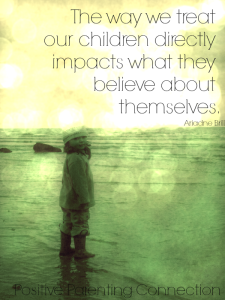Hi Families,
This week we look at how to build strong relationships with your child and learn some of the best ways to connect with them.
Sometimes one small change can make the world of difference so have a read and try something new.
Happy reading,
Ms Jodie
Connecting with Your School-Age Child
During the early years of school, your home life and family relationships are still the biggest influence on your child’s development. However, school-age children begin to change into more self-directed and peer-focussed individuals. Their behaviour and communication style grows and changes. Some of the following ideas may be useful in building on or improving your connection and communication with your school-age child.
How School-Age Children Communicate
- More complex thinking – Children begin to move away from concrete thinking. They can reflect on events, however they still see the events from their own point of view. They begin to ask more challenging questions.
- Spontaneous communication style – Children will speak what is on their mind, which is often driven by their own desires. They think about what they want and how to get it.
- Struggle for independence – Children may be torn between feeling dependent upon their parents and the need to do some things on their own. It is not unusual for children to appear needy at some times or in some situations, but at other times feel insulted when they are treated as dependent.
- Relying on others – Children will no longer solely rely on their parents’ information as the truth. They are becoming critical thinkers and will question their parents.
- One communication style – Children use one style of communication. This is usually similar to the style of communication their friends use or they hear on television as this is what children are exposed to for large parts of their day.
- Privacy of thoughts – Even children who have very strong relationships with their parents may not divulge their private thoughts due to conflicting ideas between home life and life away from home.
- More complex humour and games – Children enjoy telling jokes and begin to understand more advanced media. They enjoy playing more advanced games where they can evaluate the rules.
How to Communicate with School-Age Children
- Make time for talking and listening – There are not as many opportunities for conversation with school-age children, so you may need to make a special effort to spend time together. Your child may turn to you less frequently as s/he grows up, but make sure you stop what you are doing to listen to him/her when s/he wants to talk, has strong feelings or has a problem.
- Ask specific questions – General questions such as “How was school?” may prompt a brief response from your child. Show interest in your child by asking specific questions such as “What did the other children say about what you brought for show and tell?” or “What games did you play at lunchtime?” or “Tell me more about…”.
- Try to let your child finish – School-age children do not always have the words to express what they are thinking. Try not to interrupt when your child is having trouble finding the words – let him/her finish what s/he is saying and then respond.
- Let your child know that you are listening – repeat back what they have said to you in your own words to check with them whether you have really understood. When children feel that they are understood by their parents, they are more likely to open up to them in the future.
- Avoid criticising your child – If children are always criticised, they are less likely to speak up in the future. Explain how you feel about something they have done, why you feel that way and discuss what to do next time. Encourage empathy by asking your child to him/herself in someone else’s position.
- Use appropriate language – Use language that is mature, but that your child will understand. Your child wants it to be acknowledged that they are growing up and not spoken to like preschoolers anymore. For example, say “You will need to do your homework before dinner. Let’s decide on a good time to do it” instead of “How many times do I have to tell you to do your homework?”.
- Get your child to help set his/her own limits – Within reason, children can help set some of their own rules. For example, you might say “What time in the mornings will you make your bed?”. This is helping your child to feel like s/he has some control of his/her world. However, do not be afraid to say “No” if your child breaks a rule.
- Keep talking – Sometimes parents can feel discouraged if their child will not tell them as much as they did as preschoolers. This can be an indication that your child is trying to establish his/her independence. Keep talking to your child, even if your child does not talk as much as s/he did when younger.
How to Undo Negative Communication
Ideally, if you make some of the above suggestions a part of the way you communicate with your child, stronger connections with your child will develop. However, parents sometimes have times when they regret what they have said to their children, such as “You are hopeless” or “You’ll never learn”. One way to deal with it is to admit that you were wrong to say what you said and apologise to your child. Suggestion number five above may be a more positive way to manage the situation.




